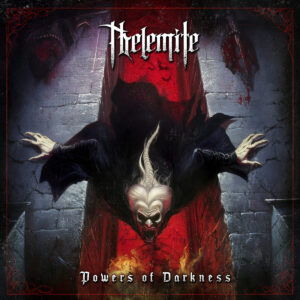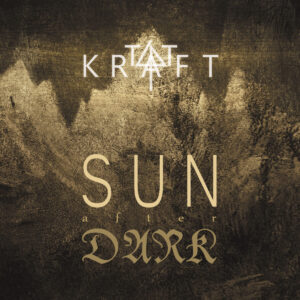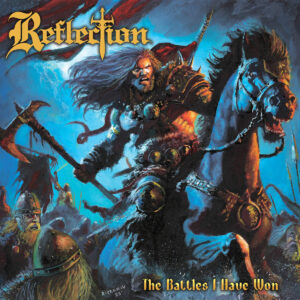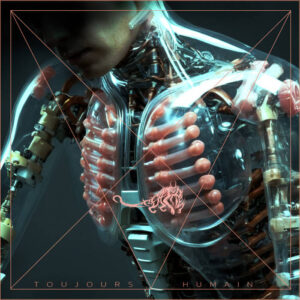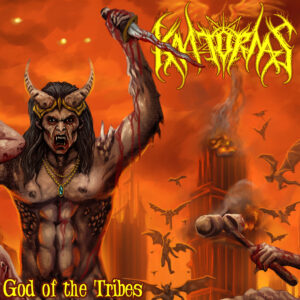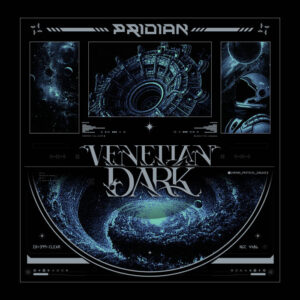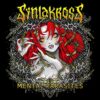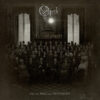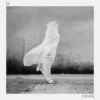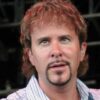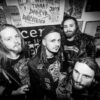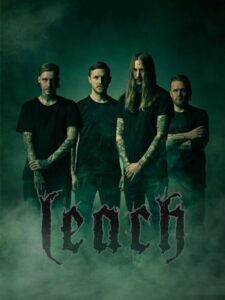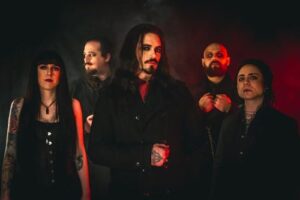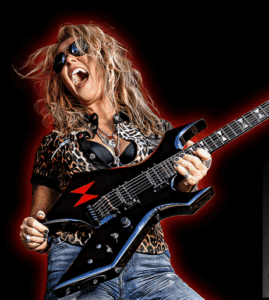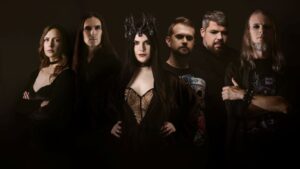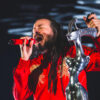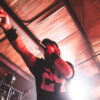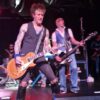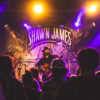Onofrio Falanga
Ashent
•
January 6, 2013
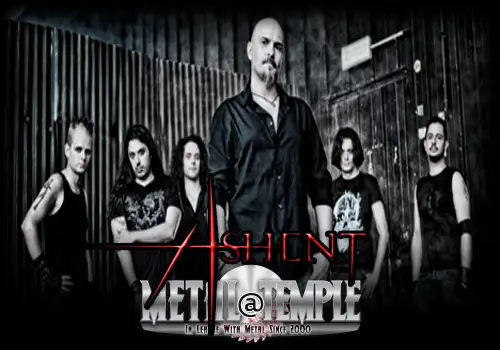
Hi! It's an honor for me to share with you guys, some details about our new creature called "Inheritance". Me and Alessandro both play the guitar solos in Ashent. For this latest album I played 4 solos while Alessandro took care of the other 7. As main music composer, since the beginning of the band's life, I decided to create more variety leaving 2 guitar players to nail down their stuff, combining different styles and solutions. In this case I spent for the cause my proggy vein, and you clearly can feel it in songs like Eve or The defiant boundary. Alessandro is completely different from me: he's a fusion rock addicted, and he loves to mix this attitude with some crazy metal unusual licks! The result is totally absurd and original.
Although all our energies have been focused in the songwriting process, searching for the right structures, harmony sequences, and vocal's melodies, it is undeniable that the technical side has always had a certain importance in the balance of our proposal. The technique is the vehicle by which you can give life to the need to surprise the listener through a more stylistic variety, but of course, it's necessary to have something to express. My personal inspirations are countless but I admit to be fascinated especially by those artists who know how to combine feelings and technical mastery. Within the confines of metal music, I have to necessarily quote the early Pain of Salvation, Devin Townsend and Opeth but also a lot of techno-death bands like Cynic, Death, Atheist, Sadist. Some classic guitar heroes could be: Steve Vai, Marty Friedman and Shawn Lane without the presumption to be able to reach their levels of excellence.
Davide Buso recorded all the drums on Inheritance, doing a magnificent work. He quit the band a couple of months after the mixing process due to personal reasons but we're still friends and he totally supports Ashent as an external element and fan! Ivan Moni Bidin (Pathosray and Gardenwall) joined the band during spring of 2012, so his role has been merely oriented in the direction of learning the arrangements previously created. But you have to know that he's also a complete musician and in the next future, we'll use his talent also as composer!
As I said before, Davide felt the necessity to end his journey with Ashent, and in general with the played music at professional level, due to personal reasons: life's priorities can change and a challenging musical project can require too much energy. He has been a key-member, a fundamental pillar of the band artistic maturation, so it's easy to understand our sad feelings at the beginning. But we are all proud of his contribution during his 8 years with Ashent: his unique drum-style, and his touch in a lot of lyrics, are a kind of trademark instantly recognizable.
Of course, when you compose songs or write lyrics there's an inevitable influence from our cultural background. In regard to the music this attitude could be found in some evocative atmospheres, a peculiarity of our sound created by the use of particular chord's sequences: we love to architect succession of harmonies very epic with the aim to sound intense and keen, but not necessarily by using only minor tonalities. A lot of people talked about a sophisticated "Mediterranean sound" and I could agree with it.
It has been a choice consciously taken all together without discussions or debates: we needed to evolve our sound and, already in our minds, Inheritance wanted to be an album stylistically complex, very ambitious with its combination of distant worlds: our main effort had been to bring together these different souls by using as much elements as possible.
From the very beginning we wanted to deliver well-constructed songs, sharing different layers of sound: there's some harmonic madness here and there which comes from other musical backgrounds. That's also due to the fact that in the band everyone comes from different experiences.
Yes, it's a real saxophone, played by Gilles Boscolo, our keyboardist. We decided to do some experimentation here and there, adding some "Pink Floyd" atmospheres in order to underline particular passages or dramatic sections. In the middle of the song "Shipwrecked affair" there's a complete sax-solo, mixed with some intense spoken lyrics; the last track of the album, an instrumental tune called "Labirintique", starts with a persuasive combination of sax, clean guitar and bass, gifting a interesting jazzy touch.
To be honest I can't imagine a traditional way to play an instrument, and the progressive metal is the ideal territory if you want to express without restrictions your desire for research and experimentation. Probably, exactly as I explained in a previous interview released for Metal-Temple, to play an instrument is a complex art closely linked to the ability to listen to as much music as possible and to be open-minded: every kind of music, every style could have something useful to learn. Talking more technically, when I play guitar I love to use a lot of different rhythmic styles inspired by the Scandinavian melodic death metal or by the US techno death, prog solos, clean open chords literally stolen from the tradition of jazz-fusion, acoustic guitar with Latin vibe and so on.
We focused more on the dynamics of the songs, with the insertion of lot of mellow parts where came very useful the contribution of Gilles who did an extensive work on sounds and effects with his mysterious machinery: you can listen to sequencers, synth, seventies arrangements
orchestral parts, choirs, electronic moods. It's not an always-in-your-face album from beginning to end, but an album that needs to be listened. In songs like the semi-instrumental "La danzatrice scalza" or in "Confessions of Riemann" there are a couple of keyboard solos which show an interesting technical level, with tricky passages and scales, but honestly it's not our goal to stage the usual and sterile battles of solos.
The variety is probably the strongest feature of the band: we are open to every musical possibility that could be explored. I think that we'll continue to develop the proggiest side of our music, working hard on elaborate vocals and choirs, introducing a lot of new sounds, using analog-keyboard or some vintage string instrument taken from the Italian tradition.
Surely, the Italian language will increase its weight in the lyrics.
Mario made an incredible work! He understood perfectly what we wanted for the new album booklet, developing some images starting from the lyrics of the new songs, trying to translate into emotive colors and concepts the feelings we wanted to share through music .
He's a brilliant genius and yes, we'll work with him again in the next future!
We don't like to consider particular bands as specific influences: honestly, we have never had references, and I think this approach is manifested concretely in the composition of our three album. We love to follow as listeners hundreds of bands but at the same time we don't like to use a band as a precise model. Clearly we play prog-metal, that's for sure, we love to mix different styles, creating complex arrangements in support of songs and so you can find some reference to some prog band, but nothing more.Our goal has been, from the beginning, to pursue a musical journey that could be original or at least personal.
We formed the band in 2001. Since then we gave light to an EP and 3 full length albums, "Flaws of elation" released in 2006 by the italian Lucretia records, "Deconstructive" (2009) and "Inheritance" (2012), both released by the finnish Lion Music. Since the very first days we were obsessed by the idea to create a combination of extreme metal and prog-metal, mixing some sophisticated elements with an unusual aggressive attitude. Then, album after album, the progressive side has become more important.
We're totally involved in the prog-death metal! Back in the nineties, I started to play guitar listening to Death, Atheist, Cynic, Pestilence, Sadist and the math-death of Meshuggah. I love that sound, greatly contaminated by every sort of mad technicality! In my car you can easily find cds of bands like Obscura, Nile, Necrophagist, Decrepith birth, but also Textures and Between the buried and me!
Thank for all your support guys!
At www.ashent.net and visiting our a facebook page (www.facebook.com/ashentband) you can find the latest news about the band!
Keep on the good work and stay metal!
More results...
